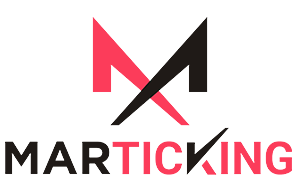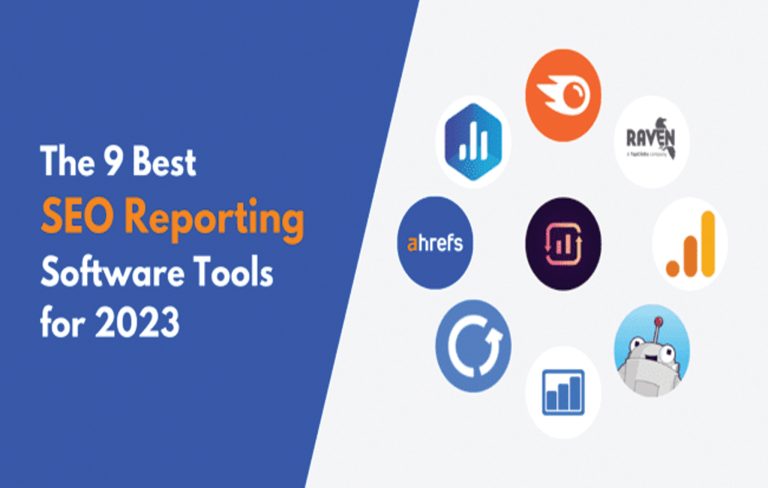Introduction
In the rapidly evolving world of digital marketing, having the right SEO reporting tool can make all the difference. These tools are essential for tracking the performance of your website, improving its visibility on search engines, and demonstrating the value of your efforts to clients or stakeholders. However, with a plethora of options available, selecting the ideal SEO reporting tool can be a daunting task. In this comprehensive guide, we’ll delve deeper into the key aspects of choosing the best SEO reporting tool for your specific needs. We’ll cover a wide range of topics, from automated SEO reports and SEO report generator tools to how to create white-label SEO reports efficiently.
The Crucial Role of SEO Reporting
Monitoring SEO Performance
Effective SEO reporting is all about keeping a finger on the pulse of your website’s performance. It empowers you to track keyword rankings, organic traffic, backlinks, and a host of other vital metrics to understand how well your SEO strategies are working.
Demonstrating ROI to Clients
For digital marketing agencies, SEO reports serve as the primary means of showcasing the value of your services to clients. They provide a tangible way to demonstrate the impact of your SEO efforts on a client’s website, making your services more transparent and valuable.
Identifying Areas for Improvement
SEO reports are treasure troves of data that highlight areas in need of improvement. By analysing this data, you can develop data-driven strategies to optimize your website’s performance and boost its ranking on search engines.
Essential Features of an SEO Reporting Tool
Automated Reporting
An excellent SEO reporting tool should offer automated reporting capabilities. This ensures that your reports are generated consistently and that you have access to up-to-date data without manual intervention.
Customization
Look for tools that allow you to customise your reports to match your branding or the branding of your clients. White-labeling is a crucial feature, especially for agencies.
Integration with Other Tools
Your SEO reporting tool should be able to integrate seamlessly with other digital marketing tools you use, such as Google Analytics, Google Search Console, or social media platforms. This integration streamlines your reporting process and provides a more holistic view of your online presence.
Keyword Tracking
Keyword tracking is a fundamental feature. Your tool should enable you to monitor keyword rankings and offer insights into how your chosen keywords are performing over time.
Types of SEO Reporting Tools
All-in-One SEO Platforms
All-in-one SEO platforms provide a comprehensive set of features, including keyword tracking, backlink analysis, site audits, and reporting. These tools offer an all-encompassing solution, making them ideal for marketers who want a single platform to manage all their SEO tasks.
Specialized SEO Reporting Tools
Some tools are designed primarily for reporting. While they may lack other SEO features, they often offer advanced customization and white-labeling options, making them perfect for agencies looking to create professional, branded reports.
SEO Plugins for CMS
If you’re using a content management system (CMS) such as WordPress, you can find SEO reporting plugins that seamlessly integrate with your website. These plugins offer a convenient way to generate and manage reports without leaving your CMS.
How to Create White-Label SEO Reports and Automate Them
Choose the Right Tool
Start by selecting an SEO reporting tool that offers white-labeling features. This enables you to add your branding elements to the reports, making them appear as if you created them from scratch.
Customise Report Templates
Customise your report templates to align with your branding or your client’s branding. Incorporate logos, colour schemes, and other brand-specific elements to create a professional and polished appearance.
Automated Scheduling
Scheduling automated reports ensures that they are generated and delivered at regular intervals, saving you time and ensuring that you consistently provide valuable insights.
Data Integration
Integrate data from various sources, such as Google Analytics and Google Search Console, into your reports. This comprehensive approach offers a well-rounded view of your SEO performance and helps you make data-driven decisions.
Interpretation and Analysis
While automation is essential, don’t underestimate the importance of human interpretation and analysis. Explaining the data in the reports, highlighting key insights, and providing recommendations for improvement adds value to your reports and fosters trust with your clients or stakeholders.
Popular SEO Reporting Tools
Google Data Studios
Google Data Studio is a versatile, free tool that allows you to create highly customizable reports by pulling data from multiple sources. It’s an excellent choice for those looking to create detailed, interactive reports.
SEMrush
SEMrush is an all-in-one SEO platform that not only offers a wide range of SEO features but also provides comprehensive reporting capabilities. It’s particularly suitable for digital marketing agencies.
Moz Pro
Moz Pro is known for its user-friendly interface and in-depth reporting capabilities. It’s a suitable choice for both beginners and experienced SEO professionals looking for a robust reporting tool.
Ahrefs
Ahrefs is renowned for its in-depth backlink analysis, but it also offers robust reporting features. It’s a solid choice for those who place a strong emphasis on backlinks and site audits.
Selecting the Right SEO Reporting Tool
Define Your Requirements
Begin by clearly defining your reporting requirements. Consider factors such as the scale of your operations, the number of clients or websites you manage, and the specific data points you need to report on.
Trial Period
Many SEO reporting tools offer a trial period. Take advantage of this to test the tool’s features and see if it aligns with your needs. Ensure that it can handle your volume of reporting and integrate well with your existing tools.
Cost Considerations
Evaluate the cost of the tool in relation to your budget. Some tools charge per report, while others offer unlimited reporting within their pricing structure. Consider whether the investment aligns with the value and features the tool
Conclusion
Selecting the right SEO reporting tool is a critical decision for anyone involved in digital marketing. It can streamline your reporting processes, save you time, improve the quality of your reports, and empower you to make data-driven decisions that enhance your website’s performance. Carefully assess your needs, explore the options, and choose a tool that aligns with your goals, budget, and scale of your operations.
Investing in a top-notch SEO reporting tool is an investment in the success and growth of your online presence. By choosing the right tool, you’ll not only be able to track and report on your SEO efforts effectively, but you’ll also be well-equipped to meet the evolving challenges of the digital landscape. Whether you’re an individual website owner, a marketer, or a digital marketing agency, the perfect SEO reporting tool can become your trusted ally in the quest for improved search engine rankings and online visibility.
Remember that the best tool for your SEO reporting needs is the one that can effortlessly integrate into your workflow, adapt to your unique requirements, and provide the insights you need to make informed decisions. By following the guidelines outlined in this guide, you’ll be well-prepared to choose an SEO reporting tool that serves as a valuable asset in your digital marketing toolkit.


